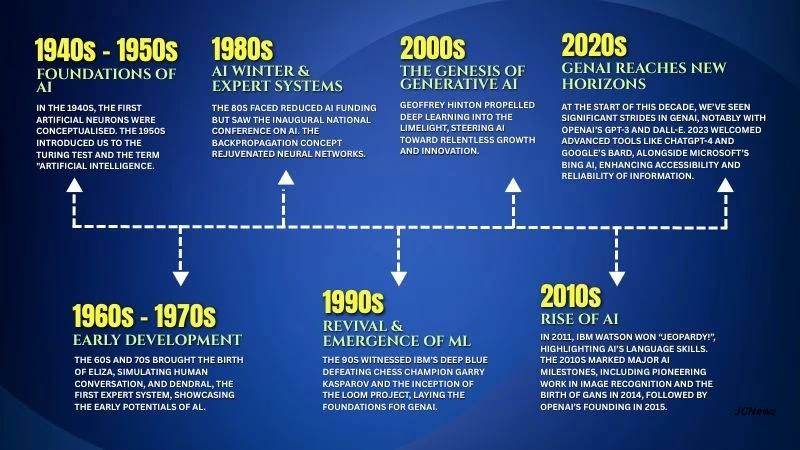Table of Contents
While 2025 may truly herald the dawn of a new era in technology—centered around trust, security, and control—ChatGPT has already dominated headlines over the past few years. It is also there in classrooms and boardrooms, while sometimes even gracing dinner table conversations. Be it drafting an email, writing some code, or picking someone’s brain, ChatGPT has likely had a role to play.
But barely 5 years down the line, with concerns surrounding data privacy, algorithmic transparency, and foreign influences spoiling development, a fresh surge of innovation is coming forward—and it is happening right in the United States.
Search interest for “American-made ChatGPT alternatives” exploded immediately after the sweeping AI regulatory measures brokered by the Biden administration in 2024. Why? Because people want smarter tools that are transparent about their workings, and without underperforming. They want tools aligned with American values, that respect user data, and work within U.S. laws.
So, the big question is:
Which U.S.-based AI programs have the best chance of rivaling, if not outgrowing, ChatGPT in 2025?
From privacy-first business bots to real-time chat assistants built and sustained by tech giants, this article lays out the main contenders, emerging startups, and the outlook for AI made in the U.S.
Also Read: Best AI Tools for Everyday Tasks That No One Talks About (2025 Edition)
Why the Surge in U.S.-Based AI Alternatives?
This sudden interest in the search for “ChatGPT alternatives made in the USA” connects directly to Biden’s administration issuing an AI regulation executive order for 2024. Be mindful about transparency, safety, and data privacy. Although OpenAI complies with many parts of the regulation, startups have begun to attract funding and incentives to concentrate on ethical AI that is regulated in the U.S.
Growing reasons for U.S. ChatGPT competitor interest:
- Data sovereignty concerns
- Transparency and algorithmic accountability
- AI bias regulation
- National security and technological independence
- Business/Enterprise Customization needs
Top U.S.-Made ChatGPT Alternatives to Watch in 2025
1. Anthropic’s Claude 3 (Claude 3.5 Coming Soon)
Headquarters: San Francisco, California
Founders: Dario Amodei (ex-OpenAI VP), Daniela Amodei
Backed by: Google, Salesforce, Zoom
Why it stands out:
Claude has been a serious contender since 2023. Its latest version—Claude 3.5—offers longer context windows (up to 200K tokens), ethical alignment, and high accuracy, particularly in professional and legal use cases. Claude’s strengths lie in safe, instruction-following AI with minimal hallucinations.
Use Cases:
- Legal and compliance industries
- Enterprise knowledge bots
- Academic research assistants
2. Mistral AI (Mistral Next U.S. Launch)
Headquarters: Though originally French, Mistral is planning a U.S. HQ by late 2025
Why it matters:
The company is working on open-weight models that could rival GPT-4 but remain transparent and lightweight. Mistral’s LLMs are modular, faster, and ideal for on-device and edge computing—a key area for future U.S. AI regulation compliance.
Expected in 2025:
A U.S.-specific launch with compliance features built for regulated industries (finance, healthcare, education).
3. Cohere Coral: Chat for Business Use
Headquarters: Toronto & San Francisco
Specialization: Language AI for enterprise
Key Feature:
Cohere Coral is designed with a focus on business privacy. Unlike ChatGPT, it’s made exclusively for enterprise data handling, meaning your company’s data won’t be reused to train the model.
Why businesses love Coral:
- No data sharing
- Private, closed-loop training
- Easy API integrations
Also Read: Best AI Tools for Everyday Tasks That No One Talks About (2025 Edition)
4. xAI’s Grok by Elon Musk
Headquarters: Austin, Texas (under X Holdings)
Founders: Elon Musk
Product:Grok-2 and Grok-3 (in development)
What makes Grok unique:
Integrated with X (formerly Twitter), Grok offers real-time information from social media. While OpenAI can’t browse in real time unless plugged in, Grok is native to the real-time world and has built-in sarcasm and personality—something users either love or hate.
Planned Upgrades in 2025:
Grok 3 may offer open weights, real-time analytics, and integration into Tesla systems and Neuralink prototypes.
5. Reka AI
Headquarters: Palo Alto, California
Launched: 2024
What it does:
Focused on multimodal AI (text + vision), Reka AI’s “Yasa” model can process images, video, and complex texts. It’s marketed toward scientific research, engineering, and medical diagnostics.
Strengths:
- State-of-the-art safety mechanisms
- Multilingual capabilities
- Developer-first approach
Upcoming U.S. Startups Challenging ChatGPT in 2025

These startups haven’t launched full products yet but are showing huge promise:
a. Imbue (Formerly Generally Intelligent)
Focus: Building agentic AI systems that can reason like humans, aimed at long-term planning and decision-making.
b. GigaML
USP: Providing fine-tuned open-source models optimized for deployment on local machines without relying on cloud services.
c. Tenstorrent
Not just software – building U.S.-made AI chips to challenge Nvidia and provide efficient hardware for running language models.
How U.S. AI Regulations Are Shaping the Future
The U.S. AI Executive Order (2024) mandates the following, impacting all AI tools:
| Regulation | Impact on AI Companies |
| Transparency in AI model decisions | Models must show why they made a certain prediction |
| Red-teaming is required before deployment | Companies must test for hallucinations and bias |
| Data provenance disclosures | Users need to know where the training data came from |
| National security audit for large models | Keeps foreign influence in check |
| Ban on unauthorized biometric use | Limit AI use in facial recognition unless opt-in |
Key Features U.S. Users Want in 2025 AI Tools
From Reddit forums to YouTube reviews and tech blogs, users are clear about their needs:
- Data privacy by design
- No usage-based training (aka your chats aren’t fed back into the system)
- Custom instructions that actually stick
- Faster output and real-time browsing
- Multilingual fluency with cultural sensitivity
- Trustable citations and fact-checking tools
ChatGPT vs. American-Made Rivals (2025 Comparison)
| Feature | ChatGPT (OpenAI) | Claude (Anthropic) | Grok (xAI) | Coral (Cohere) |
| Training transparency | Medium | High | Low | High |
| Data privacy | Optional | Strong | Unknown | Strong |
| Real-time browsing | Available in Pro | No | Yes | No |
| Best for | General use | Legal/enterprise | Social media browsing | Businesses |
| Native U.S. build | Yes | Yes | Yes | Yes |
What Businesses Should Consider Before Switching
If you’re a business considering a switch from ChatGPT to a U.S.-based alternative, ask:
- Does the tool store or use your input to improve its own model?
- Can it be run locally or on a private cloud?
- Is customer support U.S.-based and responsive?
- How does the cost compare for heavy users?
- What kind of fine-tuning or API control is available?
Enterprise users now demand not just intelligence, but compliance and control—something many emerging U.S. AI solutions are prioritizing.
Final Thoughts: Is ChatGPT Still King in 2025?
There’s no denying that ChatGPT changed the game. It was the first AI assistant many of us ever used—and it set the standard for what artificial intelligence could be. But the story doesn’t end there.
Entering the second half of 2025, the AI landscape is no longer a one-horse race. A whole set of tools is now being developed—much smarter, much more specialized, and also built with American ideals in mind. Whether it’s Claude’s ethical intelligence, Grok’s real-time sarcasm, Cohere Coral’s business privacy, or Reka’s multimodal brilliance, these platforms are carving out their own space—and fast.
So, is ChatGPT still relevant? Absolutely. But is it invincible? Not anymore.
As user demands shift from just “smart” to smart, safe, and sovereign, 2025 might just be remembered as the year America took back the reins on AI innovation. Whether you’re a casual user, a developer, or an enterprise looking for compliance and control, there’s never been a better time to explore what homegrown AI has to offer.
The AI revolution isn’t just global—it’s getting local. And the next big thing? It just might be made in the U.S.A.
FAQs
Q1: Is Claude better than ChatGPT?
Claude is better at safety, ethics, and long-context tasks. ChatGPT still wins for versatility and speed.
Q2: Can I use Grok without Twitter/X?
Currently, Grok is only available to X Premium+ users, but standalone access may come in 2025.
Q3: What’s the most private AI chatbot from the U.S.?
Cohere Coral and Anthropic Claude are top contenders for privacy-conscious users.
Q4: Are these tools free?
Most offer free versions or trials, but advanced features typically require a subscription or API credits.
Q5: Which chatbot is best for business in the U.S.?
Claude and Cohere Coral are specifically designed for enterprises focused on privacy, compliance, and scalability.


2 thoughts on “ChatGPT Alternatives: 7 Breakthrough U.S. Options for 2025”